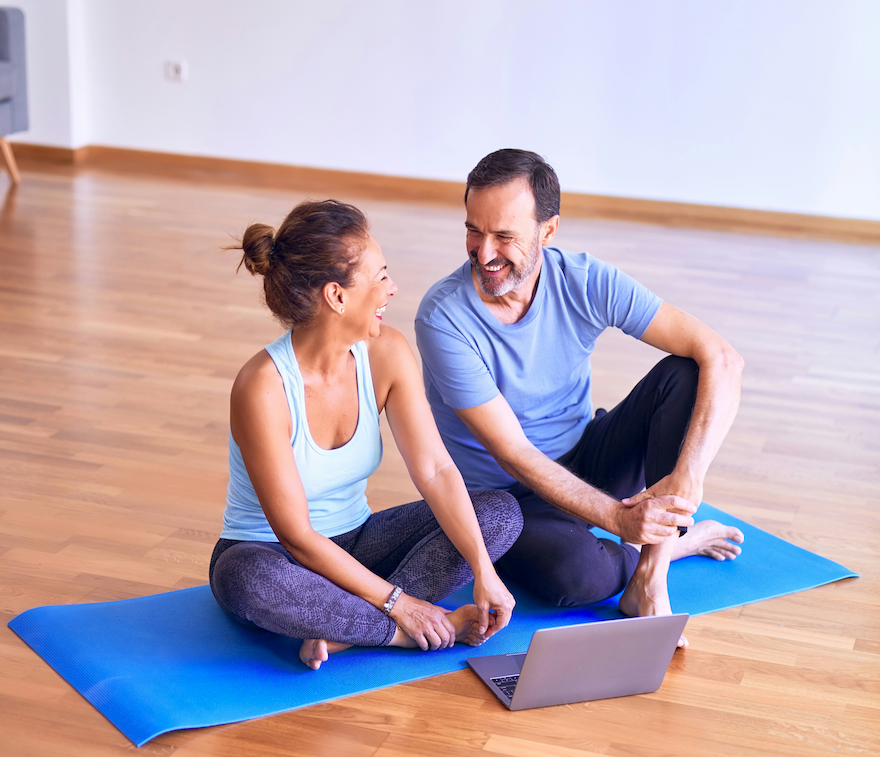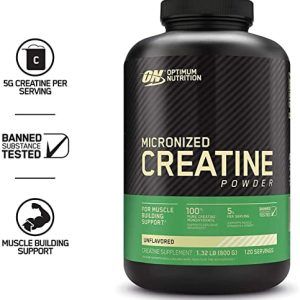If you’re putting in the time and effort at the gym, working out regularly, and consuming a quality diet, one thing’s for sure: you care about staying fit and healthy!
But do you find it difficult to get the right quantity of quality sleep? Well, you are not alone.
Sleep and recovery are just as important as exercising and hitting the gym (if not more!).
If you’re not sleeping well, your body won’t recover, muscles won’t repair and build, and you won’t have the energy to give it your all during the next training session.
Hence, you absolutely need to prioritize sleep and recovery. Period. If you still aren’t sold on the idea of sleeping and recovery, the following three points will convince you.
Importance Of Sleep And Recovery
· Your Body Needs Rest
If you’re going to the gym daily but not even feeling slightly tired, you need to discuss your workout routine with the trainer again!
A quality gym session is a grueling one where your muscles are really tested. Therefore, your body needs a good night’s sleep to rest and recover.
Otherwise, how are you going to amp up your workout tomorrow?
· Crucial Time To Recharge
Your central nervous system (CNS) is what controls your reaction time, pain response, and muscle performance. When you go to sleep every night, the CNS takes the time to recharge its batteries and sharpen up for the next day.
Moreover, while you’re asleep, the endocrine system and hormones are actively working synthesizing protein for muscle growth in your body.
On the other hand, if you don’t get sufficient sleep, the nervous system will not get a chance to restore energy levels. As a result, you will be slower, weaker, and less productive. Plus, the muscle growth process will not be completed and hence, you will find it difficult to build muscles.
· Better Training
Every fitness enthusiast wants to keep pushing themselves and do better every day. But with inadequate sleep, you’ll find workouts more draining and gain little from them.
So, if you want to train harder, longer, and most importantly, better, then you need to catch up on your sleep. Research shows that at least 7 to 8 hours of sleep is exactly what you need.

Prioritizing Sleep And Recovery
Now, you know just how important it is to provide your body and muscles with the time to heal and recover from the intensity of working out.
But practically, how do you prioritize sleep and recovery?
· Make A Schedule
We, humans, have a natural alarm clock. We automatically feel tired and sleepy at night and bright and refreshed in the morning (if we sleep on time).
But if we don’t sleep when we feel sleepy, the whole schedule goes haywire.
Particularly, if you’re new to the gym, you’re much less likely to stay motivated if you’re not sticking to a healthy sleep cycle.
Therefore, make sure you’re going to sleep at a reasonable time and getting at least 7-8 hours of sleep daily. Try to stay consistent with it.
This way you won’t be compromising on sleep and be energized to heat back to the gym.
· Extra Hour Of Sleep Or Exercise
When you’re really motivated to meet your fitness goals, you’ll want to spend every extra minute you get working out.
However, when it comes down to choosing between getting adequate sleep or fitting in an additional workout, you should always choose sleep.
Do remember, though, you should not have to choose between the two regularly. Your everyday schedule should have sufficient windows for both activities.
· Recovery Exercise
High-intensity workouts, too frequent gym sessions, or too short breaks, overtraining can occur due to several reasons. Since we’re all looking for quick and visible results, it’s quite common to make these mistakes.
Then, how can you make up for overtraining?
By going light with your training, of course!
Low-intensity activities, at least 2 days a week, provide a balanced workout routine, allow your blood flow to improve around the body, and accelerate muscle recovery.
So, while you focus on demanding workouts most of the week, take a few days to tone it down.
· Rest Day
Working out seven days a week while managing work and home is quite a tough ask for any individual.
Think about why you’re training in the first place. To lead a healthier and fitter life, right?
This means you also need to enjoy and let off some steam every now once in a while!
Dedicate one day in the week for rest, giving time to family, or getting other tasks done. Not only will your body be grateful, but your mind can also do with the time off from intense exercises.
Don’t worry. It doesn’t, in any way, mean you’re getting off track from your fitness goals. Even professional athletes allow themselves a rest day.

· Electronics Off Before Sleeping
Can’t get enough time for sleep, or you’re on your smartphone for too long?
Not only does excessive time on electronic devices do you no good, but they also emit blue light, which tells your body it’s not time to sleep yet.
So, be sure to put away your phone, laptop, or whatever device you have at least an hour before you go to bed.
Better Sleep And Recovery, Better Workouts!
Initially, it may seem a little difficult to get the balance between workout and recovery time right.
But by following these practical tips, you’ll cultivate the perfect daily routine to recover faster and perform your best every day!
If you’re looking for a personal trainer to help you take your fitness to the next level, RealFit has you covered. Get in touch, today!
FAQs About Sleep And Recovery
Common light-impact exercises include walking, jogging, biking, hiking, yoga, Pilates, etc.
A healthy adult should exercise at least 5 hours every week, but you should consult a professional trainer to determine the best routine based on your goals.
Yes. 15 to 20-minute naps assist in recovery. But do not nap for longer periods or close to bedtime.
Yes. Regular exercises help individuals sleep better and better sleep helps in working out better!
It is not recommended to work out immediately before going to bed, but moderate exercise an hour before is fine.
LATEST POSTS



FEATURED PRODUCTS
Open 24 Hours x 7 Days
Staffed Hours:
Monday to Friday : 05:30am - 1330pm
Saturday : 0530am - 1200pm
For All Other Hours: (Personal Training by Appointment)
PT SERVICES
QUICK LINKS
BOOK AN APPOINTMENT
Realfit is a results-based Gym and Personal training facility located in Malvern East, Melbourne. Book An Appointment Today!
All Rights Reserved | REALFIT
All Rights Reserved | REALFIT
Website by Social Space



